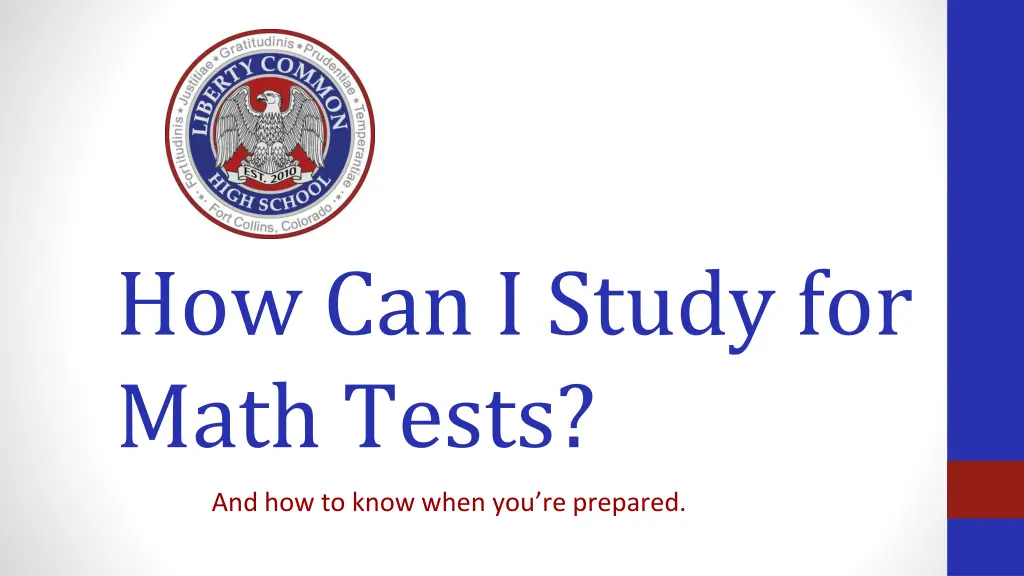
Effective Strategies for Math Test Preparation
Studying for math tests can be challenging, but with the right strategies, you can improve your preparation. Learn how to study effectively, practice without external aids, and reinforce your understanding to boost your performance on math tests.
Download Presentation

Please find below an Image/Link to download the presentation.
The content on the website is provided AS IS for your information and personal use only. It may not be sold, licensed, or shared on other websites without obtaining consent from the author. If you encounter any issues during the download, it is possible that the publisher has removed the file from their server.
You are allowed to download the files provided on this website for personal or commercial use, subject to the condition that they are used lawfully. All files are the property of their respective owners.
The content on the website is provided AS IS for your information and personal use only. It may not be sold, licensed, or shared on other websites without obtaining consent from the author.
E N D
Presentation Transcript
How Can I Study for Math Tests? And how to know when you re prepared.
Studying for Math Some students claim that it's impossible to study for math Many students feel prepared for a math test and then cannot perform the problems when the test comes Studying for math can be tricky because you are tested on your ability to perform operations, rather than convey knowledge or express ideas. Students often rely on the homework to prepare for their math tests. If they could do well on the homework, they assume they can do well on the test This is an incorrect assumption for a few reasons: Many students complete math homework with the help of friends, parents, or tutors, thus their ability to complete it is not entirely indicative of their mastery of it. Typically, more time has passed (during which a concept can be forgotten) between doing homework and a test, than between a lesson and the homework. Tests ask students to switch modes between problems that test separate concepts, while homework typically covers a single concept and does not require mode-switching.
Studying for Math (cont.) Here are some strategies for students to prepare for math tests: Complete homework on your own. This will require you to think deeply about the problems and rely on your notes, background knowledge, and recollection to solve difficult ones. Only ask for help when you have exhausted your options and are truly stumped. Complete homework assignments with the conditions you will have on the test. Don t let yourself use the crutch of a calculator or formulas if you will not have access to those on the test. After you have completed your assignments without these resources, correct the problems with their help. Correct homework problems that you miss, even after you have lost credit for them. This ensures that you understand a concept before it comes up again.
Studying for Math (cont.) Make a re-notes page with every important theorem, formula, definition, etc. that was introduced in the unit and review it often to memorize them. Put information on this that you wish you had access to on the test. Make recipe cards for how to solve a particular type of problem, with each step clearly explained and an example used. Find odd-numbered problems from your textbook (these ones typically have solutions in the back) that you think are representative of the types of problems you have been covering in class. Write them onto separate pieces of paper and randomly pick which to complete. This will mix up their order and mimic the mode-switching that will be required of you on the test.
